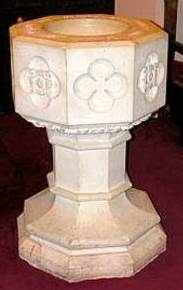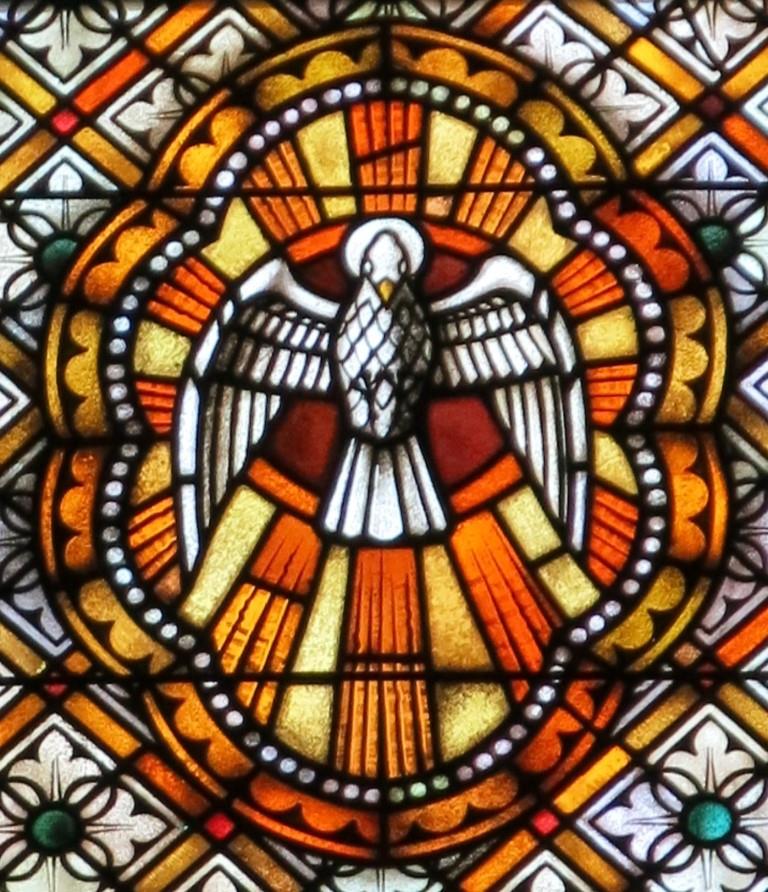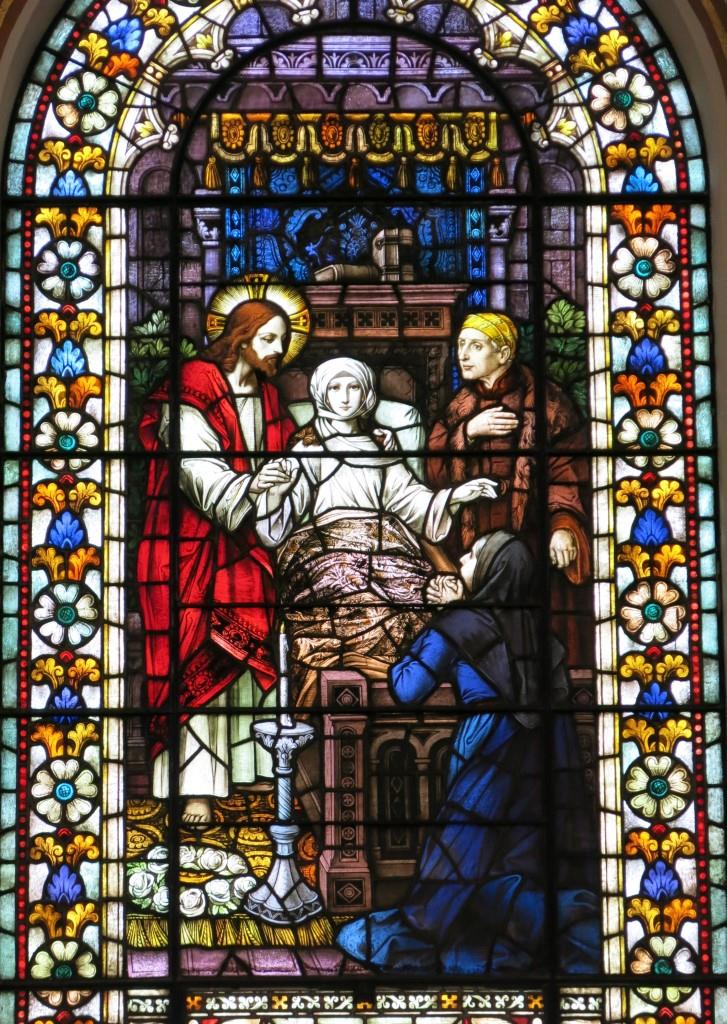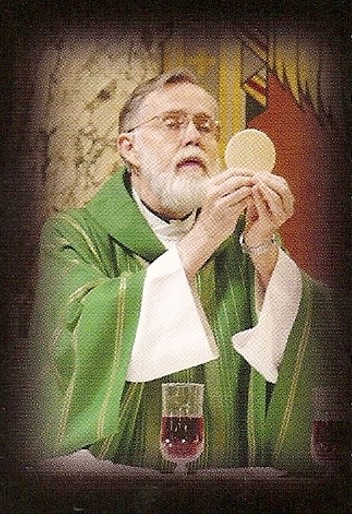Sacraments
The sacraments are efficacious signs of grace, instituted by Christ and entrusted to the Church, by which divine life is dispensed to us. Catechism of the Catholic Church 1131
Sacraments
The sacraments are efficacious signs of grace, instituted by Christ and entrusted to the Church, by which divine life is dispensed to us. Catechism of the Catholic Church 1131
*Sacraments of Christian Initiation:
Baptism, Confirmation, and the Eucharist. These lay the foundation of every Christian life.
*Sacraments of Healing:
Penance/Reconciliation and Anointing of the Sick. These continue Jesus’s work of healing and salvation.
*Sacraments at the Service of Communion:
Holy Orders and Matrimony. These two sacraments serve to build up the People of God.
Baptism, Confirmation, and Holy Orders can be received only once since they imprint a spiritual mark on the soul which lasts forever.
Of the seven sacraments, Baptism, Confirmation, and the Eucharist are the Sacraments of Christian Initiation. They lay the foundation of every Christian life.

Confirmation is the sacrament through which the Holy Spirit comes to us and enriches us with a special strength to spread and defend the faith by word and deed.
For St. Boniface students and religious education students, the age to receive confirmation (“the age of discretion”) is usually about 12 or 13 (eighth grade). Preparation classes are necessary, and parents of middle school students will be notified in the fall.


In the Holy Eucharist Jesus Christ’s body and blood, soul and divinity, under the appearances of bread and wine, is contained, is offered, and is received in Holy Communion. The Eucharist is “the source and summit of the Christian life.”
Communion with the Body and Blood of Christ increases the communicant’s union with the Lord, forgives his venial sins, and preserves him from grave sins.
The Church strongly encourages the faithful to receive the Holy Eucharist on Sundays, feast days, or daily, if possible. Anyone aware of having committed a mortal sin must receive absolution in the Sacrament of Penance before receiving Holy Communion. A person must fast from all food and drink (with the exception of water and medicine) at least one hour before receiving Communion.
The Sacrifice of the Mass with Holy Communion is offered Saturdays at 8 a.m. and 4 p.m.; Sundays at 8 a.m., 11 a.m. also with Spanish Mass at 9:30 a.m. and 12:30 p.m.
Weekday Mass (M-F) is at 7:30 a.m.
Spanish Mass Tuesday & Thursday at 6:30 p.m.
Please check the weekly bulletin for holy day and other Mass times.
It is a joyful and special day when a person receives the Holy Eucharist for the first time. St. Boniface School students and religious education students usually make their First Holy Communion at about age 7 (second grade). Parents will be notified.
In the sacrament of Penance/Reconciliation (Confession), sins are forgiven through the absolution of the priest who acts in the name of Christ. To receive the sacrament worthily, we must examine our conscience, be sorry for our sins, resolve not to sin again, confess our sins to the priest, and be willing to do the penance the he gives us.
Some guides to an examination of conscience are available here. (http://www.usccb.org/prayer-and-worship/sacraments-andsacramentals/penance/examinations-of-conscience.cfm)
Confession times at St. Boniface are Saturday 3:40-3:55 PM and Sunday 10:40-10:55
Also after Spanish Mass on Tuesday & Thursday evenings
You may also call the parish office for an appointment.
The sacrament of the Anointing of the Sick confers a special grace on a Christian experiencing the difficulties of a grave illness, surgery, or old age. Using blessed oil, a priest anoints the forehead and hands of the sick person and says liturgical prayers. Please call the parish office to arrange for reception of this sacrament.


Holy Orders is the sacrament by which men receive the power and the grace to perform the sacred duties of bishops, priests, and other ministers of the Church.
Priests receive supernatural powers, the chief of which are to change bread and wine into the body and blood of Christ in the Holy Sacrifice of the Mass, and to forgive sins in the sacrament of Penance.
If you feel that God might be calling you to the priesthood, talk with the Archdiocese’s vocation office at 513-421-3131, Ext. 2890. For information and resources, please visit their website at www.cincinnativocations.org.
Please pray for vocations:
Lord Jesus, as you once called the first disciples to make them fishers of men and women, let your sweet invitation continue to resound: “Come, follow me!” Give young men and women the grace of responding quickly to your voice. Support our bishops, priests and consecrated people in their apostolic labor. Grant perseverance to our seminarians and to all those who are carrying out the ideal of a life totally consecrated to your service. Awaken in our community a missionary eagerness. Lord, send workers to your harvest and do not allow humanity to be lost for the lack of pastors, missionaries and people dedicated to the cause of the gospel. O Mary, mother of the Church, the model of every vocation, help us to say “yes” to the Lord who calls us to cooperate in the divine plan of salvation. Amen.
Matrimony is the sacrament by which a baptized man and woman bind themselves for life in a lawful marriage. The grace of the sacrament perfects the human love of the spouses, strengthens their indissoluble unity, and sanctifies them on the way to eternal life.
St. Boniface is a beautiful church in which to be married. Please call the parish office as soon as you become engaged to begin your marriage preparation with a priest or deacon. Here are other resources that will be helpful in planning your wedding:
Common Q&As Diagram of the church Parish Wedding Guidelines booklet Photo gallery of some St. Boniface weddings Link to Archdiocesan Office for Marriage and Family Life (http://www.catholiccincinnati.org/ministries-offices/family-life/)
copyright©2004-2025 www.stbonifacecincinnati.com